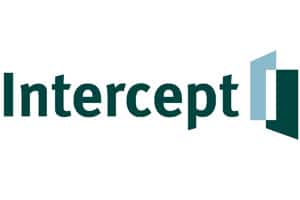
Intercept looks like it could become the first biopharma company to get a drug for non-alcoholic steatohepatitis (NASH) approved for marketing, although the results were somewhat mixed.
Shares in Intercept rose almost 20% on the Nasdaq immediately after the results of the phase 3 REGENERATE trial of obeticholic acid were announced, but dipped back to close up 6%. The data showed that the drug was able to improve liver fibrosis compared to placebo, at both 10mg and 25mg dose levels tested, after 18 months of follow-up.
NASH causes fatty build-up and fibrosis in the liver, which in serious cases can lead to cirrhosis and the need for a liver transplant. There are no approved therapies at the moment, but as there are millions of patients on the NASH spectrum worldwide some estimates put the market potential at more than $20bn.
The trial isn’t a home run, however. Neither dose of obeticholic acid separated from placebo when it came to resolving NASH, a secondary endpoint defined as either no fatty liver disease or fatty liver without inflammation.
Furthermore, the higher dose was associated with severe itching in more than half of patients and caused 9% to stop treatment, along with liver/gall bladder side effects and increases in LDL cholesterol levels that have some analysts questioning whether 25mg is approvable.
Intercept already sells a formulation of obeticholic acid as Ocaliva for primary biliary cholangitis that, according to the EU regulator, causes itching in “more than 6 in 10” patients and in 2017 was the subject of an FDA warning over liver damage. Ocaliva is dosed at 5mg to 10mg.
The significance of those findings from a regulatory perspective remains to be seen, but Intercept is confident that the top-line fibrosis data should be enough to support approval. It plans to file the drug with the FDA in the second half of the year, setting up a possible approval in 2020.
Obeticholic acid’s clinical profile does suggest room for improvement, however, and with plenty of other NASH candidates coming through the pipeline competition is shaping up to be fierce in the coming years.
The positive results come just a few days after another NASH candidate from Gilead failed a phase 3 trial in patients with advanced (stage 4) fibrosis, although Gilead is still hopeful that its drug – called selonsertib – could be effective in earlier stages of the disease. Intercept’s trial enrolled mainly patients with stage 2 and 3 liver fibrosis, with a small group of patient with mild (stage) symptoms.
It’s worth noting that Intercept’s drug is targeted at fibrosis and inflammation (via an effect on bile acid production), while Gilead’s is aimed at reducing fat deposition and inflammation. Analysts have suggested that a complex disease such as NASH will likely need to be treated with combination therapies addressing different pathological manifestations.




